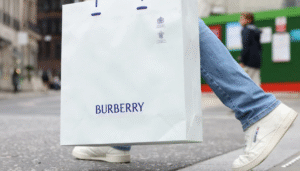Champagne sales have taken a hit as global consumers are less inclined to celebrate. According to a recent report from Comité Champagne, which represents over 16,000 winegrowers and 320 Champagne houses, shipments from France fell by nearly 10% in the past year, totaling 271 million bottles. This marks the second consecutive year of declining sales, with inflation and a generally somber global mood contributing to the downturn.
Maxime Toubart, co-president of Comité Champagne, pointed out that the current climate, marked by inflation, global conflicts, economic uncertainty, and political instability in major markets like the US and France, is far from conducive to celebrations.
Sales within France also dropped by 7%, reaching 118 million bottles, as the country grapples with a challenging political and economic environment, including a recent hung parliament following a snap election.
In July, luxury brand LVMH had already warned that 2024 would be a tough year for Champagne, citing a 15% decline in bubbly sales during the first half of the year.
Despite the setbacks, David Chatillon, co-president of the Champagne trade group, emphasized that Champagne remains a resilient industry with a proven model, offering hope for future recovery. LVMH’s CFO, Jean-Jacques Guiony, also noted that given the current global challenges, people are less inclined to open bottles of Champagne, a drink traditionally associated with celebration and joy.
LVMH, the world’s largest Champagne producer, owns prestigious brands like Dom Pérignon, Krug, and Veuve Clicquot. Last year, the company made its first move into the non-alcoholic sparkling wine market by investing in French Bloom, a brand of non-alcoholic Champagne, although the exact investment amount was not disclosed.
Meanwhile, Rémy Cointreau, a French spirits company that owns the Leonardo DiCaprio-backed Champagne brand Telmont, has forecasted a larger-than-expected decline in sales. This is due to customers reducing their spending amidst broader economic challenges.
The Champagne-producing region of France is also facing challenges from extreme weather events, such as high temperatures and early frosts. These conditions led to the smallest harvest in 2021 since 1957. In response, Champagne houses like Telmont are adopting more sustainable farming practices to appeal to environmentally-conscious consumers who are increasingly drawn to green initiatives.














